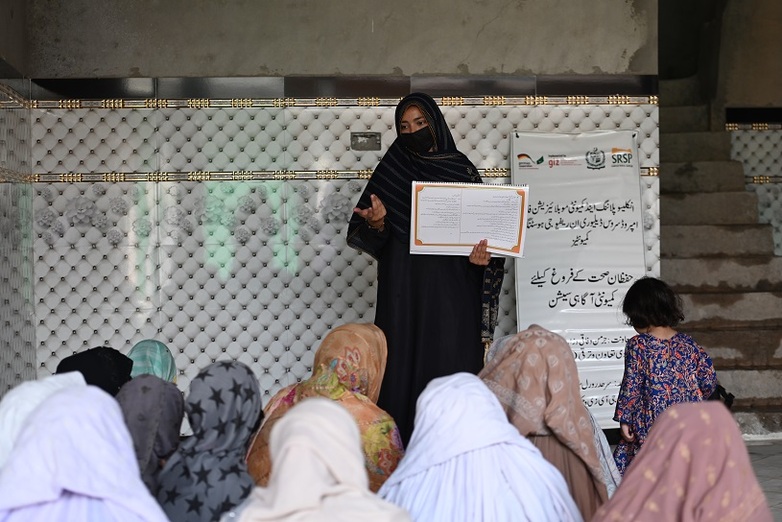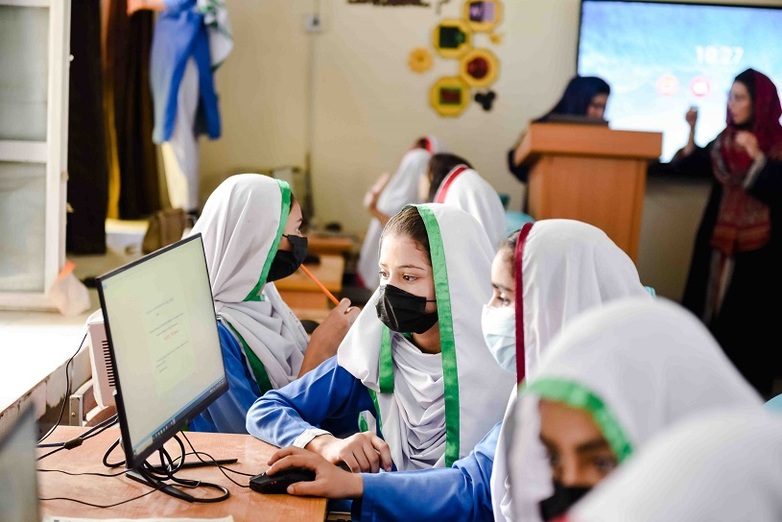Strengthening education and health services for refugees and host communities in Pakistan
Strengthening Education and Health Services for Refugees and Host Communities (EHS) in Pakistan
-
Commissioning Party
German Federal Ministry for Economic Cooperation and Development (BMZ)
-
Country
-
Lead executing agency
More
-
Overall term
2020 to 2027
-
Products and expertise
Security, reconstruction and peace
Context
For more than four decades, Pakistan has been home to large numbers of refugees. More than three million Afghans live in Pakistan and nearly half of them are registered refugees.
The majority of the refugees live in the province of Khyber Pakhtunkhwa. There is limited access to quality health and education services due to high demand. In addition to the refugees, other vulnerable people from the host communities, such as children, young people and people with disabilities, are also affected by this.
At the same time, economic participation for women and girls is limited due to traditional social norms.
Objective
Access to public health and education services in areas in Pakistan which host refugees has been strengthened.

Approach
The project focuses on four key areas:
Education
- Planning inclusive education services together with vulnerable groups
- Skills development for education stakeholders and parents’ associations through training courses
- Raising awareness through campaigns to reduce the number of students dropping out of school
Health
- Planning inclusive health services together with vulnerable groups
- Skills development for health sector stakeholders and health care management committees through training courses
- Raising awareness through campaigns on maternal and child health as well as hygiene measures
Government structures
- Improving support services in areas such as health and education for the Commissionerate for Afghan Refugees (CAR) in urban areas
- Expanding collaboration between CAR and other government structures
- Promoting women’s networks and exchange forums for vulnerable groups
Public participation
- Supporting digital and hybrid opportunities for greater public participation
- Expanding skills for participation in digital and hybrid approaches
- Implementing campaigns for digital and hybrid public participation
Last update: November 2023






